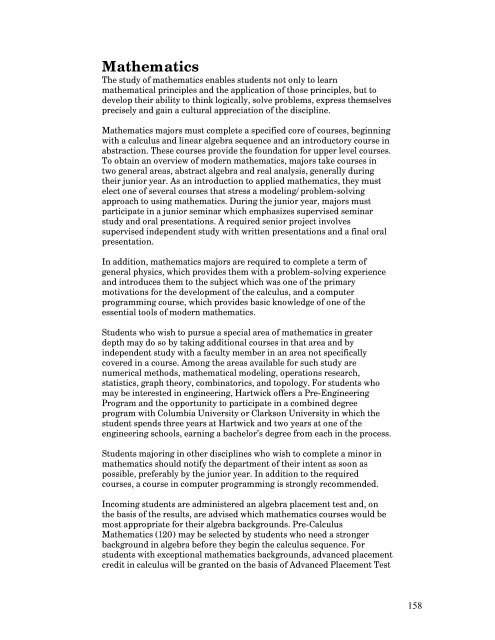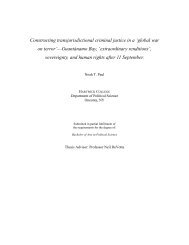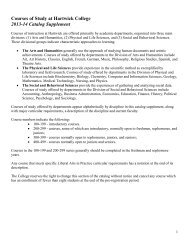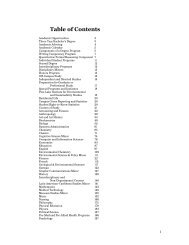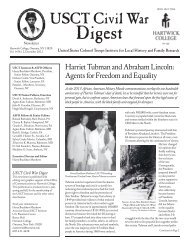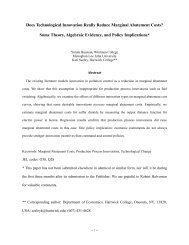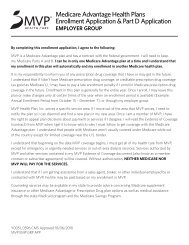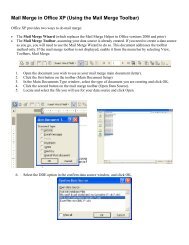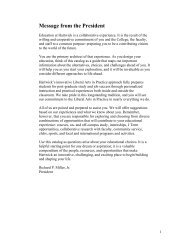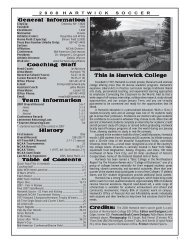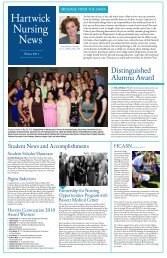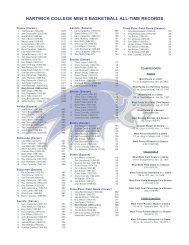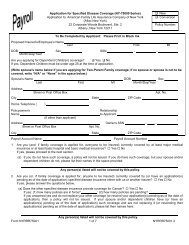Table of Contents - Hartwick College
Table of Contents - Hartwick College
Table of Contents - Hartwick College
Create successful ePaper yourself
Turn your PDF publications into a flip-book with our unique Google optimized e-Paper software.
Mathematics<br />
The study <strong>of</strong> mathematics enables students not only to learn<br />
mathematical principles and the application <strong>of</strong> those principles, but to<br />
develop their ability to think logically, solve problems, express themselves<br />
precisely and gain a cultural appreciation <strong>of</strong> the discipline.<br />
Mathematics majors must complete a specified core <strong>of</strong> courses, beginning<br />
with a calculus and linear algebra sequence and an introductory course in<br />
abstraction. These courses provide the foundation for upper level courses.<br />
To obtain an overview <strong>of</strong> modern mathematics, majors take courses in<br />
two general areas, abstract algebra and real analysis, generally during<br />
their junior year. As an introduction to applied mathematics, they must<br />
elect one <strong>of</strong> several courses that stress a modeling/problem-solving<br />
approach to using mathematics. During the junior year, majors must<br />
participate in a junior seminar which emphasizes supervised seminar<br />
study and oral presentations. A required senior project involves<br />
supervised independent study with written presentations and a final oral<br />
presentation.<br />
In addition, mathematics majors are required to complete a term <strong>of</strong><br />
general physics, which provides them with a problem-solving experience<br />
and introduces them to the subject which was one <strong>of</strong> the primary<br />
motivations for the development <strong>of</strong> the calculus, and a computer<br />
programming course, which provides basic knowledge <strong>of</strong> one <strong>of</strong> the<br />
essential tools <strong>of</strong> modern mathematics.<br />
Students who wish to pursue a special area <strong>of</strong> mathematics in greater<br />
depth may do so by taking additional courses in that area and by<br />
independent study with a faculty member in an area not specifically<br />
covered in a course. Among the areas available for such study are<br />
numerical methods, mathematical modeling, operations research,<br />
statistics, graph theory, combinatorics, and topology. For students who<br />
may be interested in engineering, <strong>Hartwick</strong> <strong>of</strong>fers a Pre-Engineering<br />
Program and the opportunity to participate in a combined degree<br />
program with Columbia University or Clarkson University in which the<br />
student spends three years at <strong>Hartwick</strong> and two years at one <strong>of</strong> the<br />
engineering schools, earning a bachelor’s degree from each in the process.<br />
Students majoring in other disciplines who wish to complete a minor in<br />
mathematics should notify the department <strong>of</strong> their intent as soon as<br />
possible, preferably by the junior year. In addition to the required<br />
courses, a course in computer programming is strongly recommended.<br />
Incoming students are administered an algebra placement test and, on<br />
the basis <strong>of</strong> the results, are advised which mathematics courses would be<br />
most appropriate for their algebra backgrounds. Pre-Calculus<br />
Mathematics (120) may be selected by students who need a stronger<br />
background in algebra before they begin the calculus sequence. For<br />
students with exceptional mathematics backgrounds, advanced placement<br />
credit in calculus will be granted on the basis <strong>of</strong> Advanced Placement Test<br />
158


